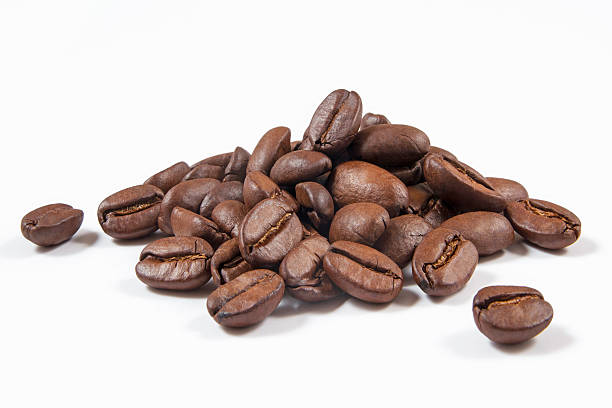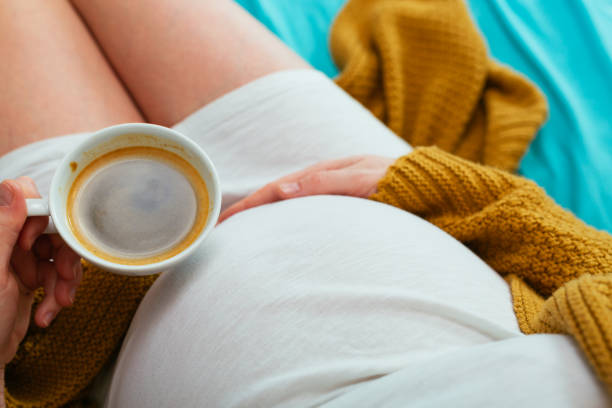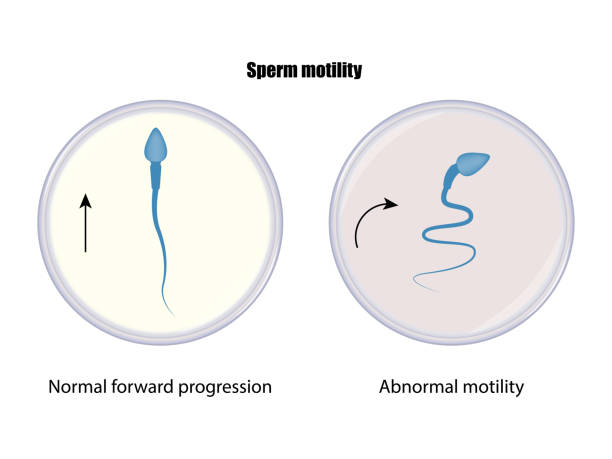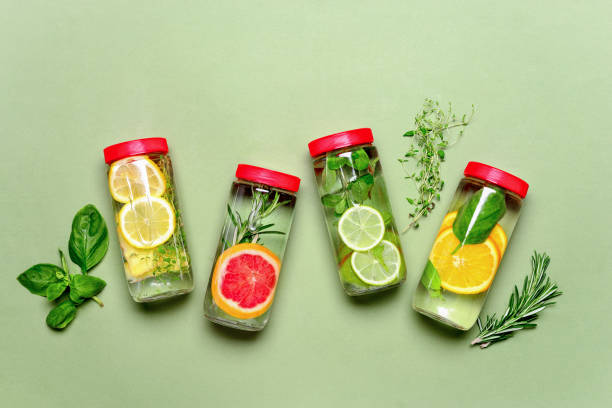Reproductive Health, What to Eat and Drink
Is Coffee Bad For Your Reproductive Health
Coffee has long been a favorite pick-me-up for millions of people around the world. The rich, aromatic beverage is enjoyed for its energizing effects, bold flavor, and ability to help jumpstart the day. However, there has been some debate on the impact of coffee consumption on reproductive health. In this article, we delve into the question: Is coffee bad for your reproductive health?

Effects of Caffeine on Reproductive Health
While coffee is generally considered safe to consume in moderation, studies suggest that excessive coffee intake may have negative effects on both male and female fertility. Caffeine, the primary active compound in coffee, is known to stimulate the central nervous system and increase alertness. However, it can also have various effects on reproductive health.
For women, high caffeine consumption has been linked to an increased risk of miscarriage. A study published in the American Journal of Obstetrics and Gynecology found that women who consumed more than 200 milligrams of caffeine per day had a significantly higher risk of miscarriage compared to those who consumed less. Additionally, excessive caffeine intake has been associated with longer time to conceive and hormonal disturbances, which can affect menstrual regularity.
In men, excessive coffee consumption may lead to reduced sperm quality and lower sperm count. A study published in the journal Fertility and Sterility found that men who consumed more than 250 milligrams of caffeine per day had a higher percentage of abnormally shaped sperm and lower sperm counts compared to those who consumed less caffeine. These effects on sperm health can potentially contribute to difficulties in achieving pregnancy.

The Impact Of Coffee Consumption On Fertility
Coffee intake has sparked curiosity in the field of fertility. According to several research, a high caffeine intake may reduce fertility in both men and women. However, it is crucial to note that the study on this topic is not conclusive, and individual caffeine sensitivity may differ.
Women who are attempting to conceive may benefit from limiting their coffee consumption. The American Society for Reproductive Medicine suggests that women seeking to conceive or receiving reproductive treatments limit their caffeine intake to 200 mg per day, which is about equivalent to one 12-ounce cup of coffee. Caffeine can be found in a variety of foods and beverages, including tea, chocolate, and certain pharmaceuticals.
The relationship between coffee drinking and fertility in men is less obvious. While some studies imply a deleterious impact on sperm health, further research is needed to determine a conclusive link between coffee use and male fertility. Nonetheless, it is always a good idea for men to live a healthy lifestyle, including moderate coffee use, in order to maintain their reproductive health.

Coffee And Menstrual Cycle Irregularities
In addition to its possible impact on fertility, coffee drinking has been linked to irregular menstrual cycles in women. Caffeine has been demonstrated to alter hormone levels and disrupt the delicate balance required for normal menstrual periods.
A study published in the American Journal of Clinical Nutrition discovered that consuming a lot of coffee was linked to lengthier menstrual cycles and an increased chance of irregular cycles. Caffeine is thought to interfere with hormonal signals required for normal ovulation and menstrual cycle management.
If you have irregular menstrual cycles and drink coffee on a regular basis, you may try cutting back on your caffeine intake. Choosing decaffeinated coffee or other alternative beverages can help you have a more regular menstrual cycle.

Coffee And Pregnancy
During pregnancy, women should be very cautious about caffeine usage. High caffeine intake during pregnancy has been linked to an increased risk of miscarriage, premature birth, and low birth weight.
The American College of Obstetricians and Gynecologists recommends that pregnant women limit their caffeine intake to 200 mg per day. It is crucial to realize that caffeine can be found in a variety of beverages and foods, not only coffee. Reading labels and being cautious of caffeine levels in your diet can help you have a safe pregnancy.
It’s worth noting that some research has revealed a link between heavy caffeine use during pregnancy and developmental difficulties in children. However, additional research is needed to establish a conclusive causal association, and it is always better to seek specialized pregnancy advice from a healthcare practitioner.

Coffee And Male Reproductive Health
While most research on coffee’s impacts on reproductive health has focused on women, it is also vital to evaluate the potential consequences on male fertility. As previously stated, excessive coffee drinking has been linked to poorer sperm quality and count, limiting a man’s capacity to father a child.
It is thought that caffeine in coffee may harm sperm health by increasing oxidative stress and DNA damage. Furthermore, coffee can reduce sperm motility, making it more difficult for sperm to reach and fertilize an egg.
If you are concerned about your reproductive health as a man, you should consider lowering your coffee use. Adopting a healthy lifestyle, which includes regular exercise, a balanced diet, and stress management, can also assist promote sperm health.
Other Factors To Consider For Reproductive Health
While coffee consumption is an important element to consider for reproductive health, keep in mind that it is only one piece of the jigsaw. Other factors can influence fertility and reproductive health in both men and women.
Maintaining a healthy weight, avoiding smoking and excessive alcohol consumption, controlling stress, and engaging in regular exercise are all critical for reproductive health. Additionally, some medical disorders, drugs, and environmental variables can all have an affect on fertility. It is critical to discuss any concerns with a healthcare expert who can offer tailored advice based on your individual circumstances.

Alternatives To Coffee For Reproductive Health
If you want to minimize your coffee consumption for the benefit of your reproductive health, there are numerous options to consider. Here are a few choices:
- Herbal teas: Chamomile, peppermint, and rooibos, have no caffeine and might be a relaxing beverage alternative.
- Decaffeinated coffee: If you still enjoy the taste of coffee, switching to decaffeinated varieties can help you cut your caffeine intake while still enjoying the flavor.
- Green tea: Green tea has less caffeine than coffee and is high in antioxidants, making it a healthier option.
- Water: Sometimes all you need is a glass of cool water to relieve your thirst and raise your energy levels.
- Fruit-infused water: Adding slices of fresh fruits such as lemon, cucumber, or berries to your water can make it more tasty and hydrating.
Remember that moderation is vital when it comes to any beverage, and you should listen to your body and make decisions that promote your overall health and well-being.
Tips for Moderating Coffee Consumption
If you’re not ready to fully eliminate coffee from your life, but want to limit your intake for the benefit of your reproductive health, here are some suggestions:
- Set a daily limit: Determine how much caffeine you are comfortable consuming every day and stick to it. This can help to prevent excessive consumption.
- Choose smaller portions: Instead of drinking huge cups of coffee, try smaller servings to lower your overall caffeine intake.
- Choose lighter roasts: Lighter roasts often contain slightly less caffeine than darker roasts. Choosing lighter coffee options can help you consume less caffeine.
- Monitor your caffeine consumption from other sources: Remember that caffeine can be found in a variety of beverages and foods, not only coffee. Be cautious of your overall caffeine intake, including all sources.
- Consider caffeine-free days: Allow your body to rest from caffeine by designating specific days of the week as caffeine-free. This can aid in resetting your tolerance and reducing reliance.
- Experiment with alternative beverages: Look into herbal teas, decaffeinated coffee, and other caffeine-free options to see which ones you like most.
Remember that everyone’s caffeine tolerance and sensitivity vary. What works for one individual may not work for others. It is critical to listen to your body and make decisions that are consistent with your unique needs and preferences.
Conclusion
In conclusion, while coffee is a popular beverage, it’s important to limit how much you consume, especially if you’re trying to conceive. Excessive coffee consumption has been related to harmful consequences on male and female reproductive health, such as an increased chance of miscarriage, a longer time to conceive, and hormonal imbalances.
However, it is crucial to highlight that the study on coffee’s effects on reproductive health is not conclusive. Individual sensitivities and overall lifestyle choices may also be important considerations. Moderation is essential, and it’s always a good idea to speak with a healthcare practitioner for personalized counsel.
If you’re worried about your reproductive health or attempting to conceive, reduce your coffee consumption and look into other beverages. Remember to prioritize total health, which includes a well-balanced diet, regular exercise, and stress management.


